Nothing beats the feeling of driving a shiny, immaculate car that turns heads wherever it goes. Over time, though, a car’s paintwork can lose its luster due to exposure to harsh weather conditions, road debris, and UV rays.
Traditional waxes and sealants have been used for decades to protect and enhance a car’s paint, but they often require frequent reapplications and may not provide long-lasting results.
Enter ceramic coatings – the latest breakthrough in automotive detailing technology.
Ceramic coatings have revolutionized how car enthusiasts protect their vehicles and restore their shine.
This article will delve into ceramic coatings, exploring what they are, how they work, and the transformative results they can deliver for your beloved car.
Understanding Ceramic Coatings
Ceramic coatings, or nano-ceramic or liquid glass coatings, are liquid polymers that chemically bond with a vehicle’s factory paint, forming a protective and durable layer. Unlike traditional wax or sealants, ceramic coatings create nano-scale protection that is hydrophobic, scratch-resistant, and UV-resistant.
Ceramic coatings utilize nanotechnology to create a chemical bond with the vehicle’s clear coat. This chemical bond creates a robust protective layer that repels water, dirt, and contaminants while enhancing the paint’s natural gloss and depth. The unique chemical structure of ceramic coatings ensures they can withstand extreme temperatures, acidic substances, and minor scratches.
Benefits of Ceramic Coatings
1. Unparalleled Protection
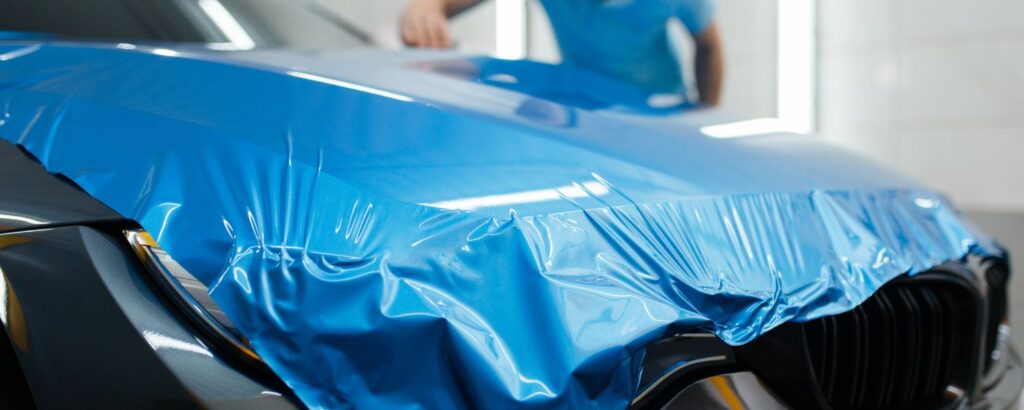
Ceramic coatings provide excellent protection against things like bird droppings, tree sap, road salt, and other harmful substances found in the environment. Their hydrophobic properties cause water to bead up and slide off, reducing the chances of watermarks and stains.
2. Longevity
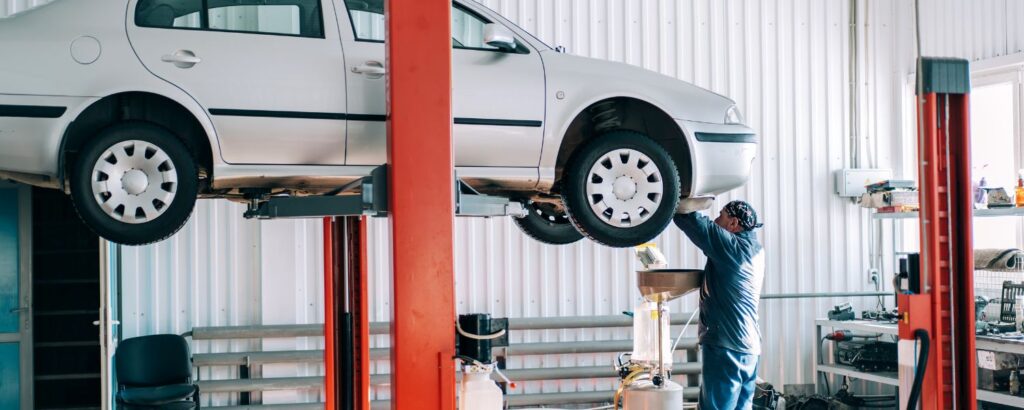
Traditional waxes and sealants require frequent reapplication, often lasting only a few months. In contrast, ceramic coatings can last several years with proper maintenance, providing long-term protection and shine for your car.
3. Enhanced Aesthetics
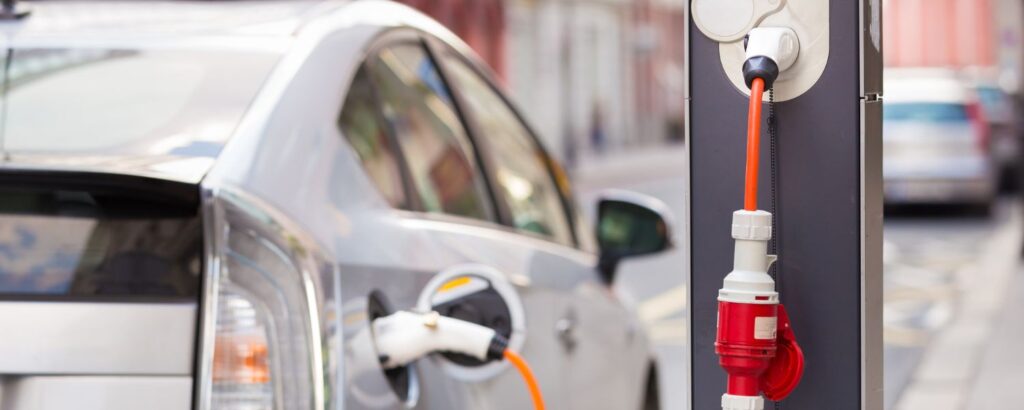
Ceramic coatings significantly enhance a car’s appearance by intensifying its color, depth, and gloss. The result is a head-turning, showroom-quality finish that is sure to impress.
4. Easy maintenance
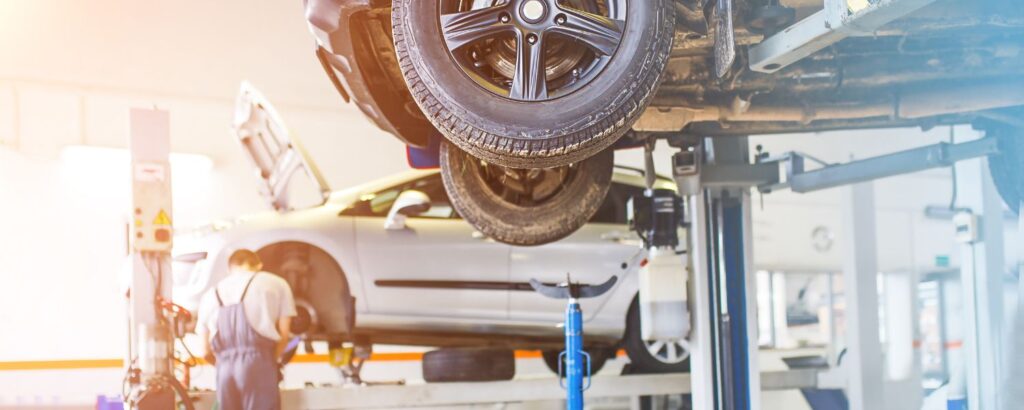
The hydrophobic nature of ceramic coatings makes maintenance a breeze. With a ceramic coating, your car’s surface becomes less sticky to dust and dirt, making washing your car super easy and fast.
5. UV Resistance
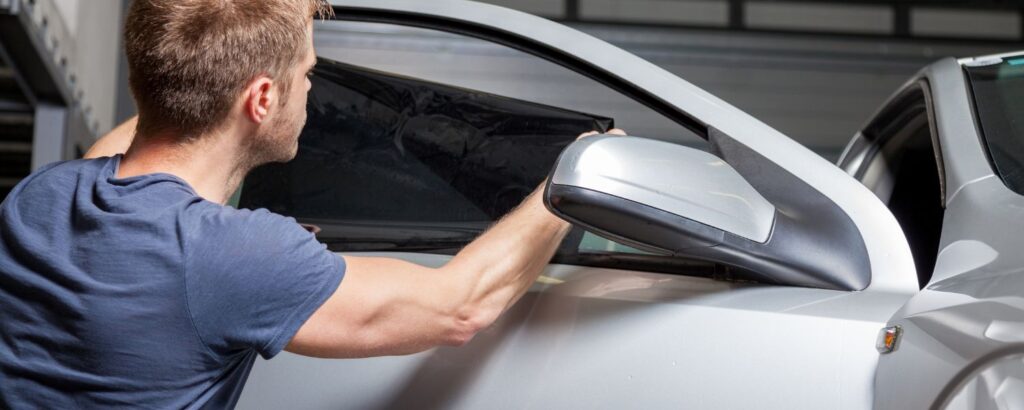
Prolonged exposure to the sun’s harmful UV rays can cause a car’s paint to fade and deteriorate. Ceramic coatings act as a shield against UV rays, preventing premature aging of the paint.
6. Cost-Effective

Though ceramic coatings may have a higher upfront cost than traditional products, their longevity and protection capabilities make them cost-effective in the long run. Fewer visits to the detailing shop and reduced product consumption justify the initial investment.
Selecting the Best Ceramic Coating
Selecting the best ceramic coating for your car is essential to ensure optimal protection and long-lasting results. Here are six crucial points to consider when choosing a ceramic coating:
1. Research and Reviews
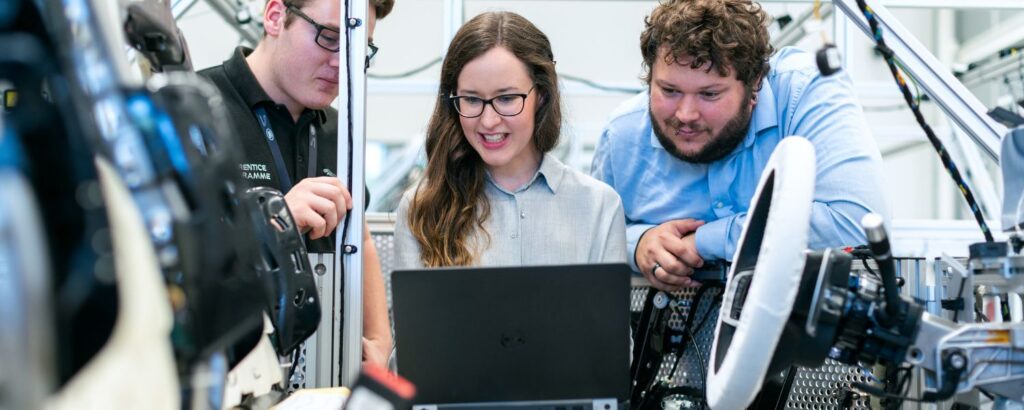
Conduct thorough research on various ceramic coating brands and read customer reviews. Look for feedback on the product’s performance, ease of application, durability, and overall customer satisfaction. Reliable sources include online forums, automotive blogs, and professional detailers’ opinions.
2. Performance and Features

Consider the ceramic coating’s specific features and performance characteristics. Look for properties like high water repellency, UV, scratch, and chemical resistance. The coating should protect against environmental contaminants and harsh elements that can damage your car’s paintwork.
3. Durability
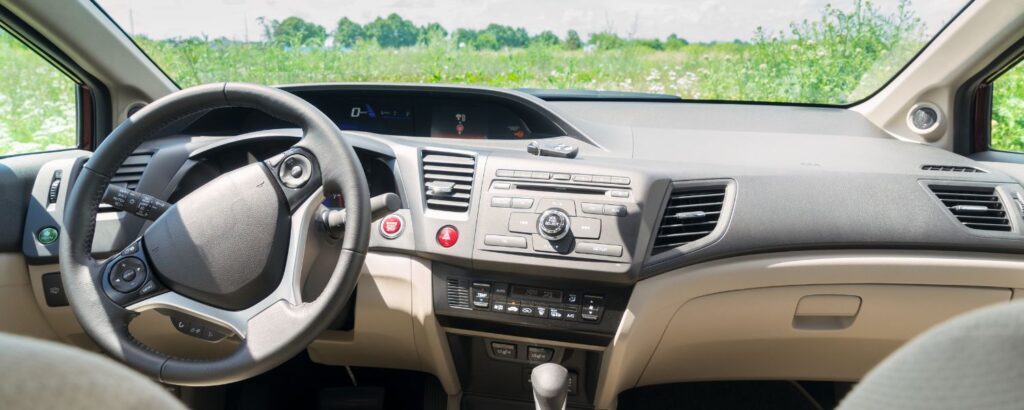
One of the most critical factors in choosing a ceramic coating is its durability. Depending on the brand and product, the coating’s lifespan can vary from a couple of years to several years. Opt for a coating with a longer-lasting performance to minimize the need for frequent reapplications and ensure long-term protection for your vehicle.
4. Application and Ease of Use

Evaluate whether the ceramic coating can be applied by yourself as a DIY project or if a professional application is recommended. Some coatings may require meticulous surface preparation and precise application techniques for optimal results. Select a coating that matches your abilities and the time you will spend applying it.
5. Warranty and Customer Support

Reputable ceramic coatings usually have a warranty guaranteeing their performance and quality. Review the terms and conditions of the warranty, including any maintenance requirements or limitations. Additionally, assess the customer support offered by the manufacturer or seller to ensure you can seek assistance if needed.
Maintenance Tips for Long-Lasting Results
Maintaining your car’s ceramic coating is crucial to ensure it continues to provide long-lasting protection and a brilliant shine. Here are some essential maintenance tips to help you achieve optimal results:
1. Hand Washing
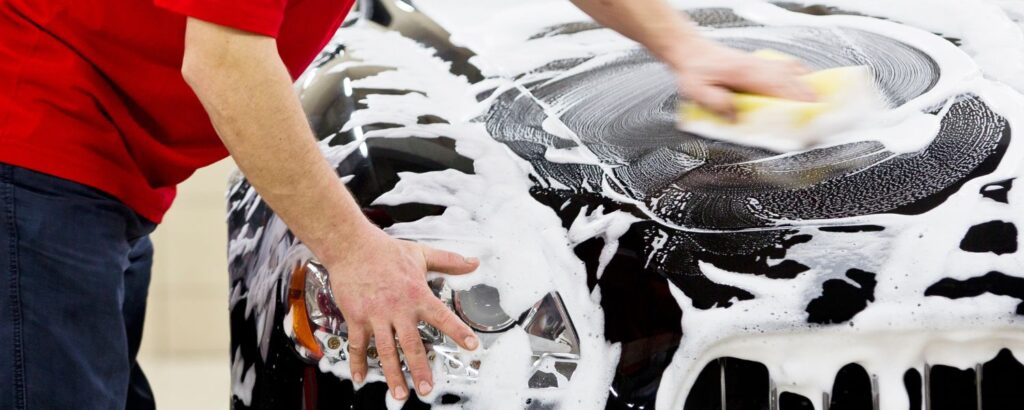
Regularly hand wash your car using the two-bucket method. Take one bucket and fill it with soapy water, and then use another bucket with clean water. Dip the wash mitt in soapy water, wash a section of the car, and then rinse the mitt in clean water before repeating the process. Avoid automated car washes with brushes, which can cause scratches and degrade the ceramic coating.
2. Use pH-Neutral Car Shampoo
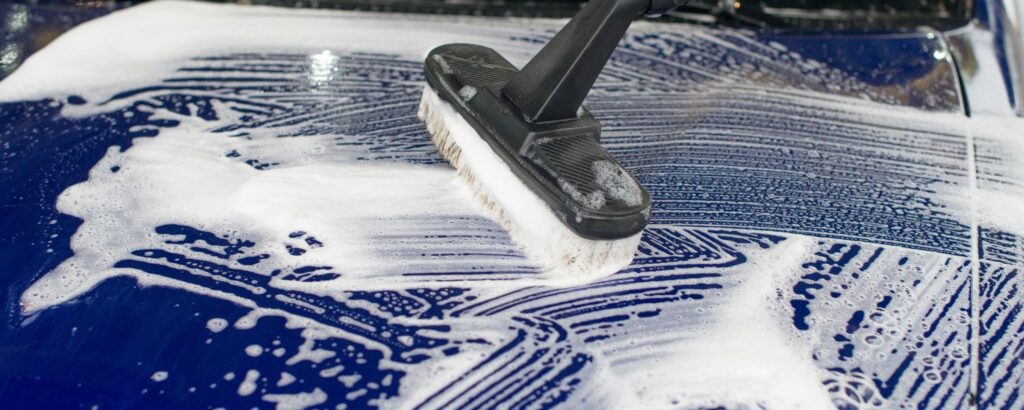
Choose a pH-neutral car shampoo specifically designed for ceramic-coated vehicles. Harsh chemicals in regular household detergents can strip the coating’s hydrophobic properties and reduce effectiveness.
3. Drying Techniques
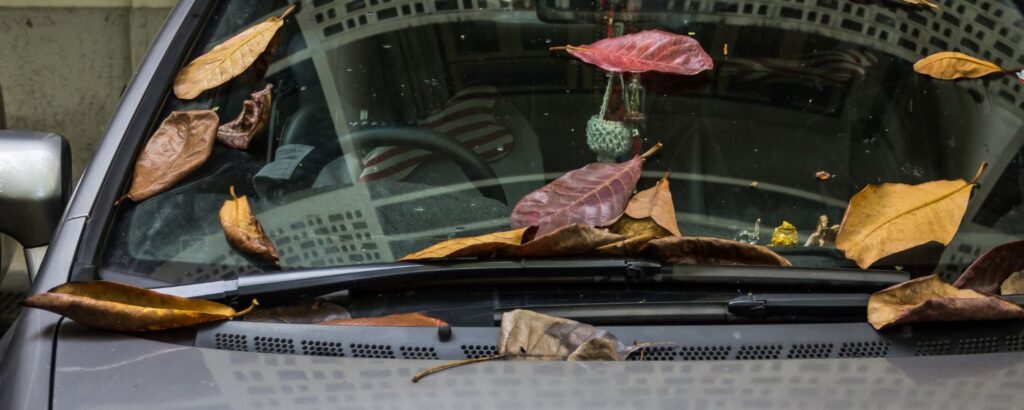
Using a microfiber drying towel to dry the car gently after washing. Pat the surface rather than rubbing, as rubbing can cause swirl marks. Air drying is not recommended, especially in direct sunlight, as it can lead to water spots and mineral deposits.
4. Avoid Harsh Chemicals
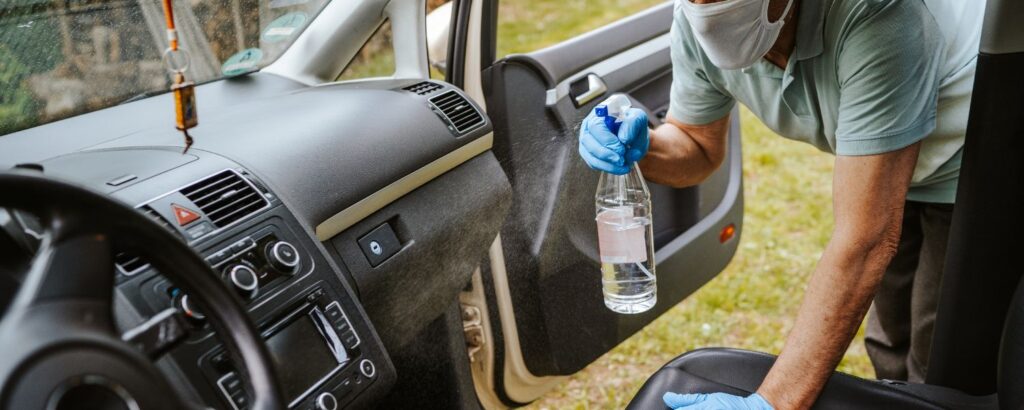
Avoid using harsh chemicals, solvents, or abrasive cleaning tools on your car’s surface. They can damage the ceramic coating and compromise its protective properties.
5. Use Recommended Maintenance Products
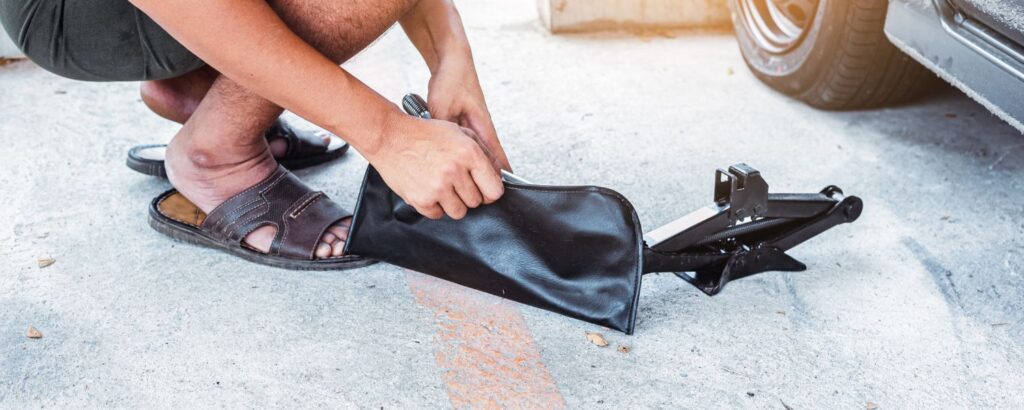
Use maintenance products recommended by the manufacturer of the ceramic coating. These products complement the coating’s characteristics and help maintain its performance.
6. Apply a Quick Detailer

Use a compatible quick detailer to remove light dust and enhance the coating’s shine between regular washes. Quick detailers can also reinforce the hydrophobic properties.
7. Avoid Parking Under Trees

Parking under trees can expose your car to sap, bird droppings, and other debris. Parish your vehicle in a covered area or a garage to protect it from environmental contaminants.
Conclusion
Thanks to ceramic coatings, it has never been easier and more effective to preserve your car’s shine and protect it from the elements. With their transformative properties and long-lasting results, ceramic coatings have become a game-changer in automotive detailing.
By understanding the benefits, application process, and maintenance requirements, car enthusiasts can unleash the full potential of these innovative coatings, ensuring their vehicles maintain a brilliant shine for years to come.
Whether you apply it yourself or seek professional assistance, a high-quality ceramic coating will revitalize your car and leave it as good as new.

